Part 103: Sparks in the East
February 1936 - April 1936: Unrest
Dissent is a growing problem in Germany, and opposition to the government from Communist and Liberal groups is hindering production, severely weakening Germany's mighty industries. To get things moving again, the budget for military appropriations is cut, and a generous program of incentives to artists, musicians and theaters is begun, in addition to an expansion of shelter and food programs for the unemployed, all in the interests of winning over public opinion.

Thanks to the booming military industries during the twenties, the German military has access to some very advanced hardware, though most of it has yet to propagate through the ranks, many soldiers still using the same equipment they did twenty years ago.

Unlike the infantry, the airforce's equipment is kept top-of-the-line, with brand new Messerschmitt and Heinkel planes held in readiness at Germany's airfields.
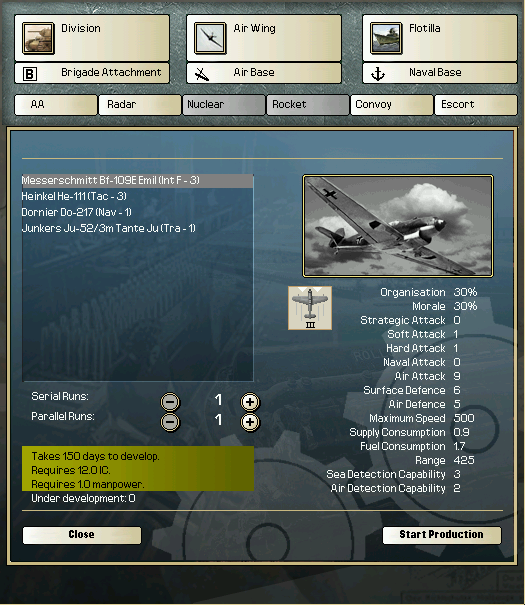
The navy is also given considerable resources, having developed several new experimental ship classes said to have the range to reach the Americas without refueling, including the Lothringen class Carrier and the Hohenzollern class Battleship.
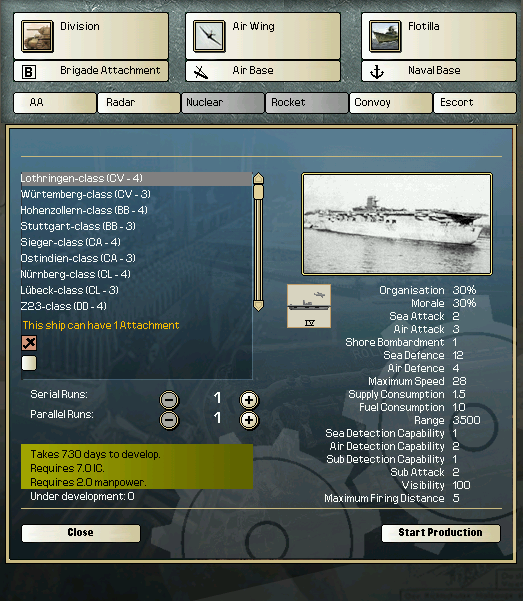
Germany's intelligence networks are somewhat underfunded, lacking reliable intel on most nations outside of Europe.
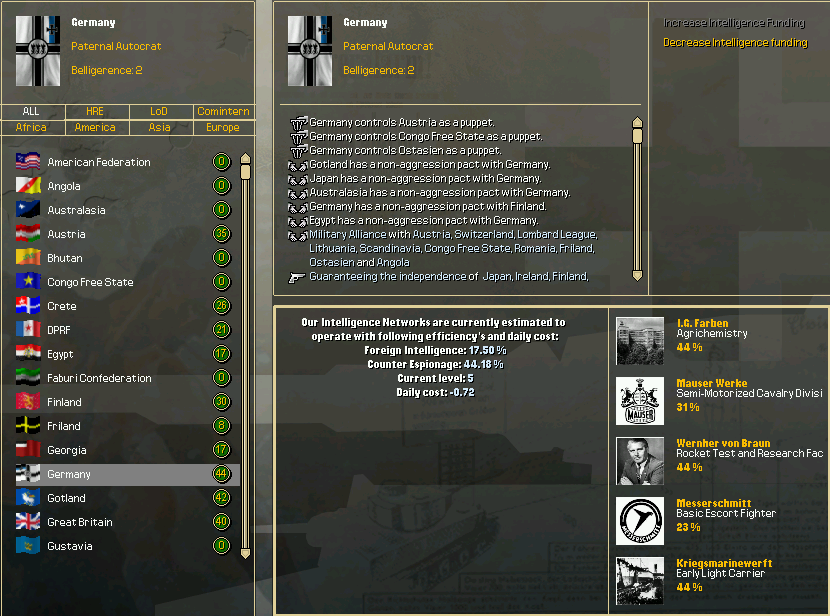
In terms of technology, Germany remains one of the fore-runner countries in most areas, lagging behind nations such as Iberia and the Union only in the area of mobile warfare.
Infantry Technology
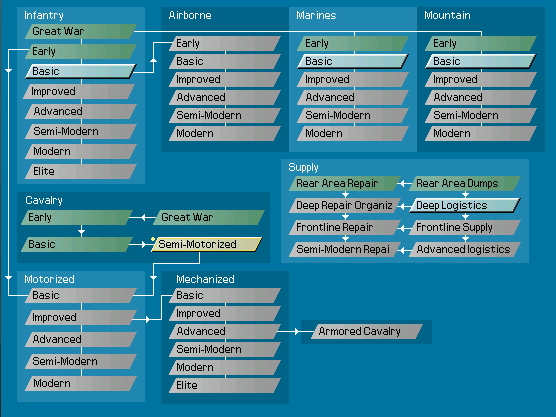
Armor Technology
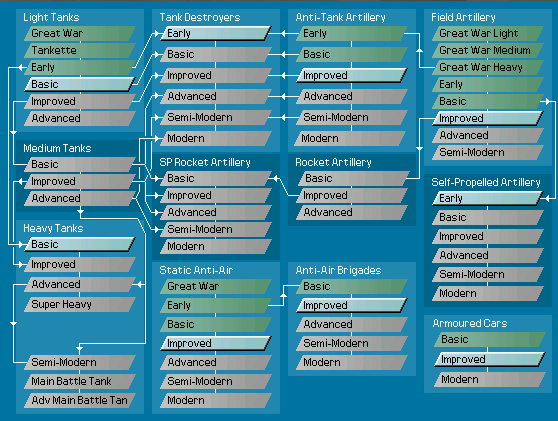
Naval Technology
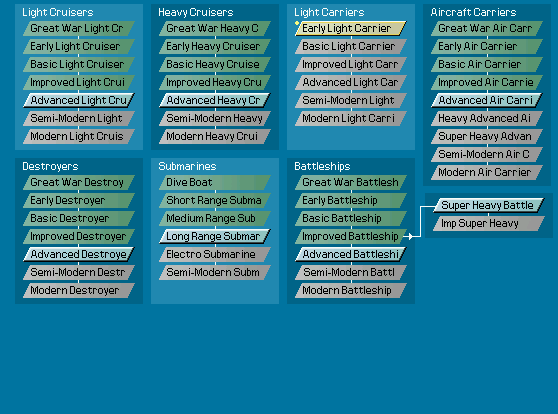
Aircraft Technology
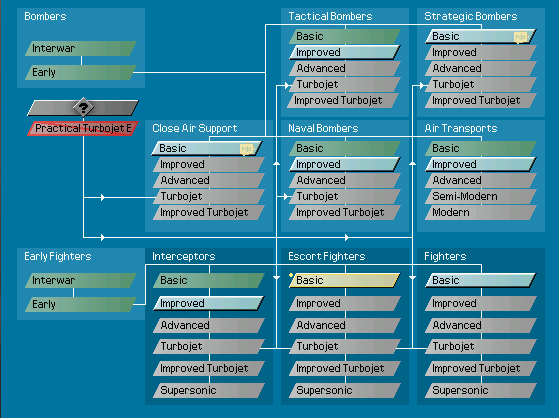
Industrial Technology

Land Doctrines

Naval Doctrines

Air Doctrines

The bulk of the German infantry is disposed along the French border, dug into a complex system of bunkers, trenches and razorwire that stretches from Oldenburg to Switzerland. Field Marshal von Blomberg of Oberkommando Nord commands this vast force.
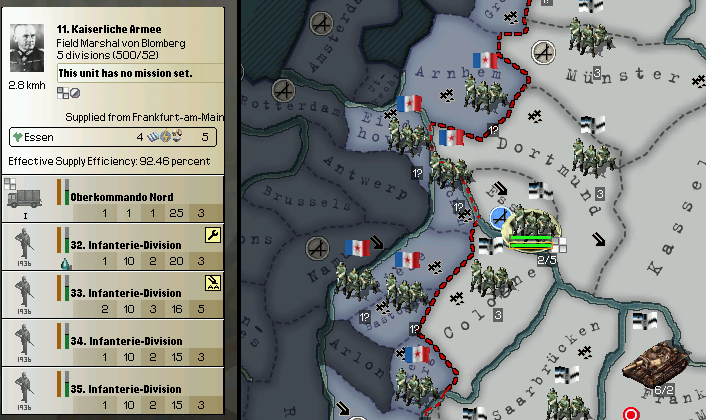
In less illustrious a position, General von Rundstedt commands Oberkommando Sud and the five divisions stationed in Innsbruck to guard the Union border.
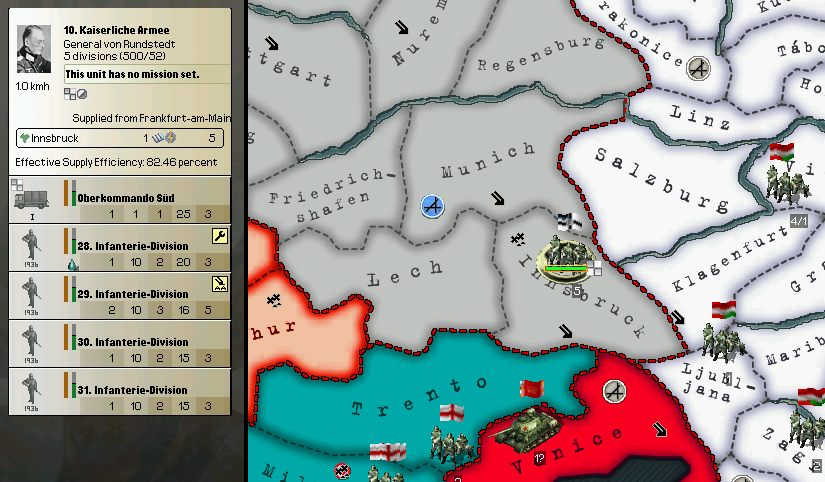
Germany's armored forces consist only of two corps, each composed of half cavalry and half light armor.
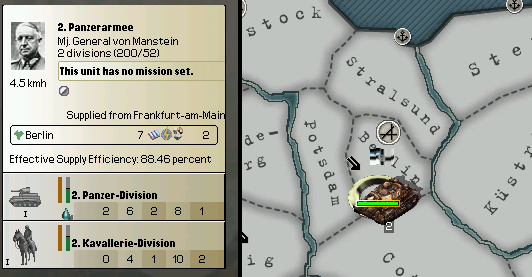
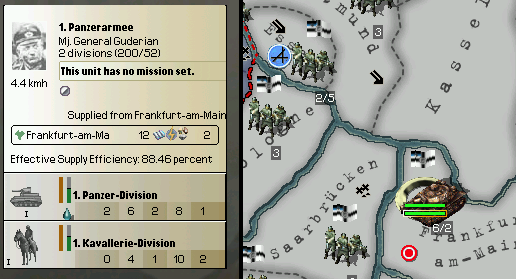
Considered the third greatest in the world, the Kriegsmarine is divided into several fleets scattered all over the German Empire. The heart of the navy is the Baltic Fleet, with its twelve ships of the line under the command of Grand Admiral Raeder.
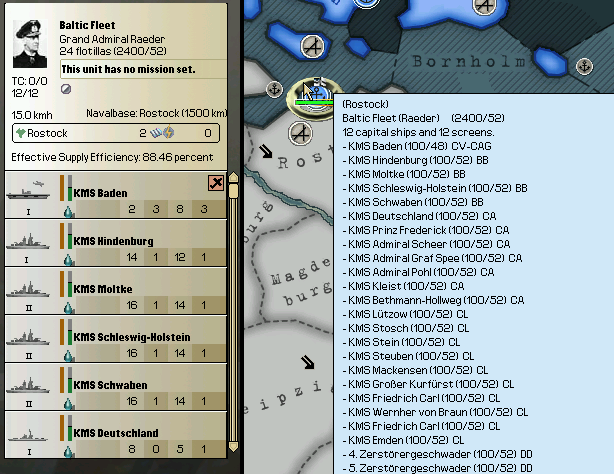
Most of the new ships in the fleet are assigned to the Atlantic Fleet, intended for long range combat patrol and raiding. The small transport fleet also operates under the command of Schutlze, though it is functionally an independent unit.
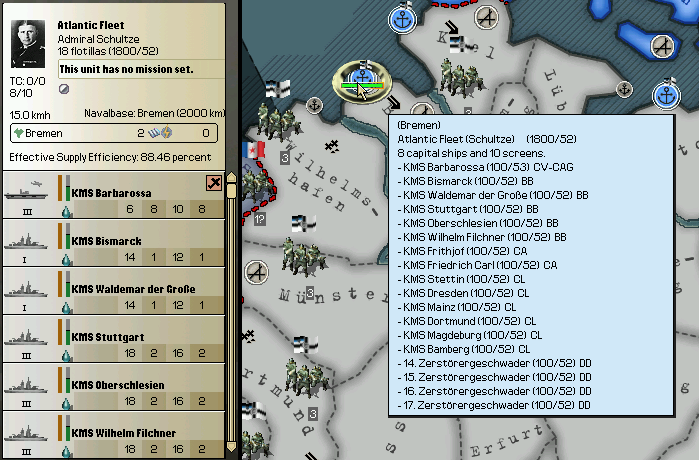

The small Submarine Fleet, based at Danzig, is more a remnant of Germany's experimenting into various forms of naval warfare than an important part of the fleet, though it could serve a useful purpose in raiding convoys in the English Channel, should Britain and Germany go to war.
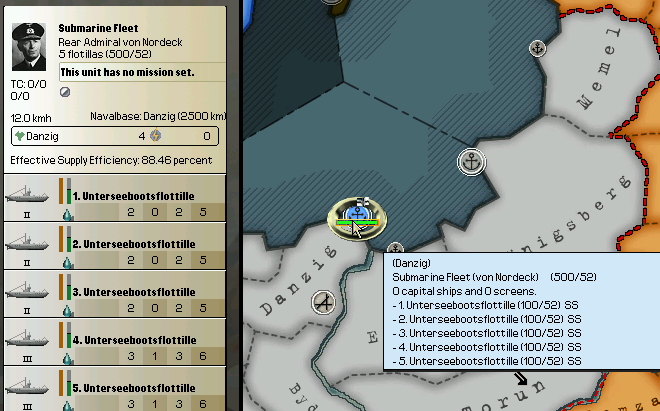
In the colonies, the Indian Ocean Fleet operates out of Ceylon and the Far East Fleet out of Singapore, both largely composed of older ships given the duty to protect the sealanes going to and from Germany's colonies.
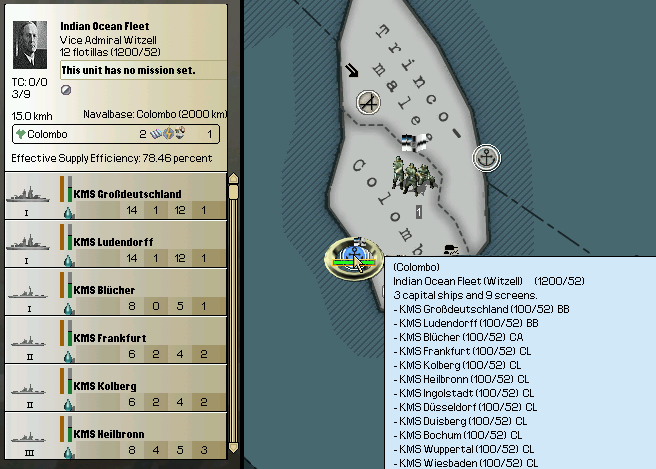
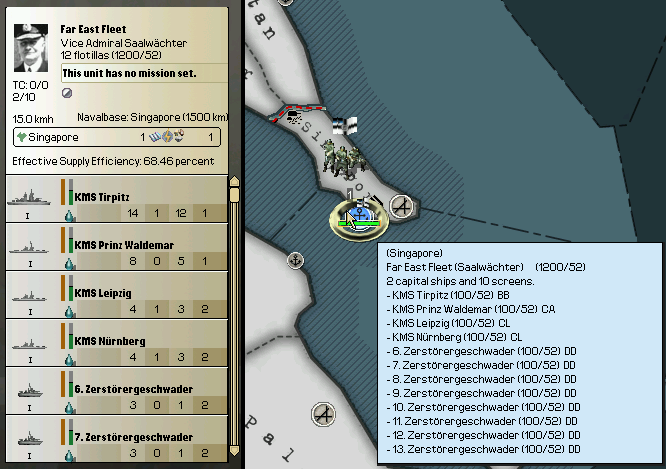
In terms of military, most of the troops in the colonies are local militia under the command of the autonomous East Indian Company, who administer and defend Germany's east indian colonies with their own army, navy and air force.
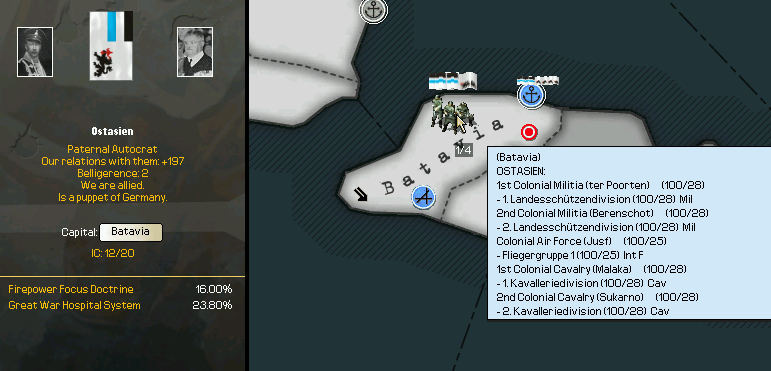
The Congo also has their own small army of colonial cavalry to keep the peace and defend against raiders.
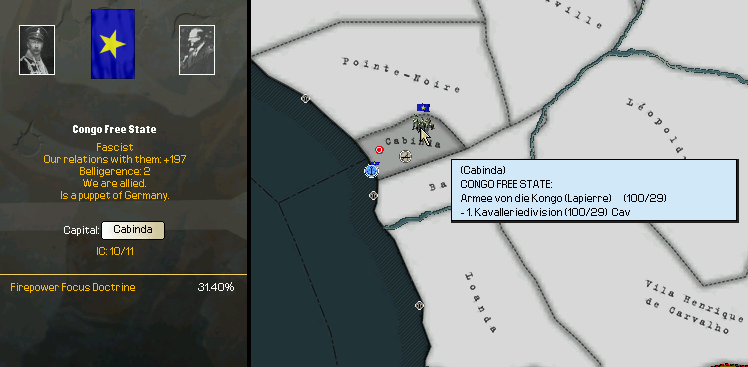
All of this, however, is not enough to maintain order. On February 20th, Communist riots shake the provincial capital of Berlin as mobs of workers take to the streets, quickly joined by opportunistic looters. By the evening, police and the army have managed to restore order, though at the cost of much bloodshed.
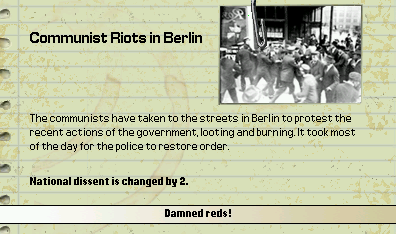
Franz von Papen resigns his post as Foreign Minister on March 2nd, citing ideological disagreements with Waldemar, more fallout from the failed attempt at a HRE-League pact.
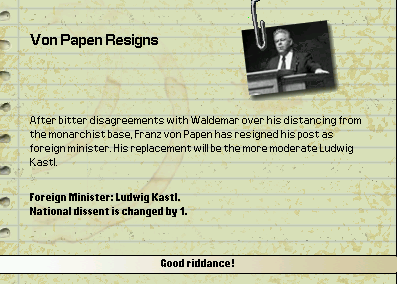
The Union approaches Germany with a cautious offer of trade in the interests of bettering relations. Although unsure whether the effort is genuine, Waldemar agrees, and soon small amounts of oil and coal are moving back and forth over the border in Italy.
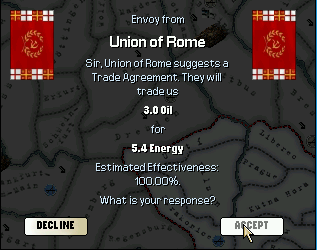
Seeking to dispel any image of perceived weakness, Waldemar sends the Atlantic fleet out on maneuver in the English channel, showing off the naval power of Germany to its adversaries. Upon reaching Brest, the fleet discovers a large French fleet massed there, sailing out to meet the Germans. The two fleets pass each other within visible distance, one flying the monarchial flags of Germany, the other the red banners of the French revolution.
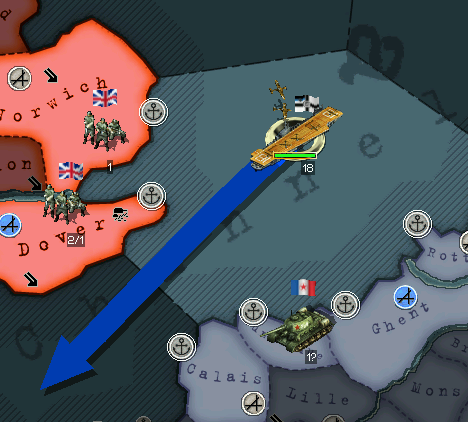
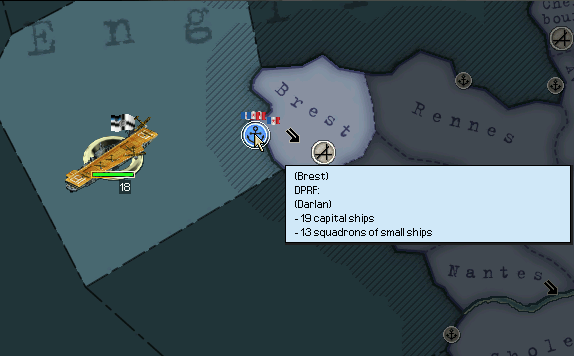
A covert war is going on beneath the diplomatic maneuvering and military posturing, with agents from rivalling countries seeking to infiltrate, sabotage and smear their enemies, usually with little more effect than creating a diplomatic incident or two.
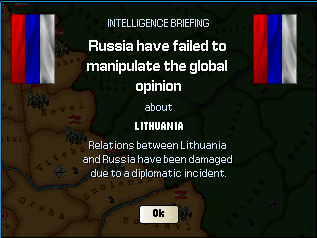
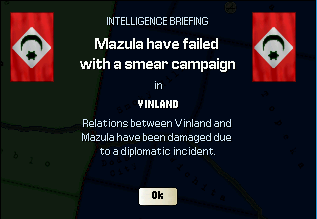
On March 12nd, the Russians open negotiations with Finland over the possibility of leasing their old Odinholm ports south of Viipuri. The Finns demands a non-aggression pact, a diplomatic guaranatee of independence, and the sum of $100 million for a ten-year lease of the territory, a deal the Russians agree to.
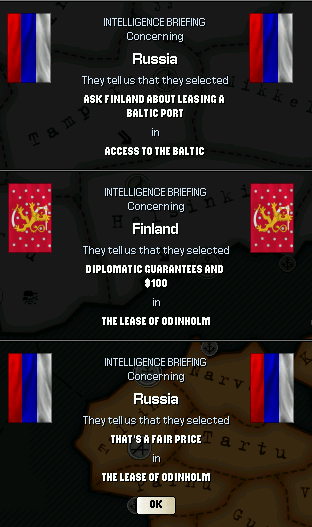
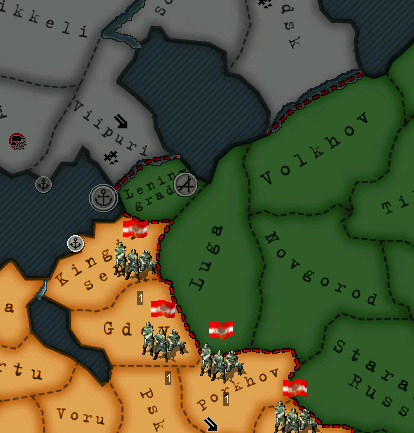
Elections are held on Ireland and the sitting Social Democrats are re-elected with a wide majority.
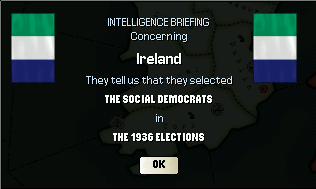
On March 29th, a general strike is called among factory workers all across Germany, paralyzing the industries. An emergency meeting of the Reichstag is held to decide on how to deal with the strikes, who are demanding greater political freedoms and participation in the political process in addition to increased pensions, unemployment pay and other benefits. There are two options on the table: Send in the army and break up the strike, or negotiate. The first may achieve a faster result, but has the possibility of further turning public opinion against us, while the second could easily draw out on time, and might make the government look weak. Of course, at this point, looking weak may be the least of Waldemar's worries.
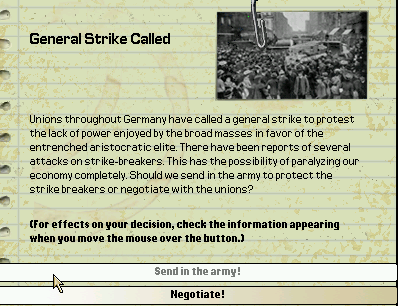
Voting
(Yes, they are supposed to show the same effect, there is no immediate difference to either)
Option A: Send in the army

Option B: Negotiate
